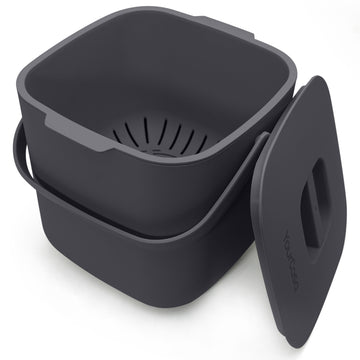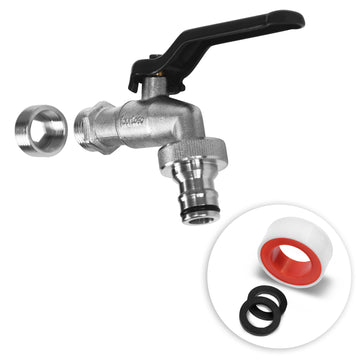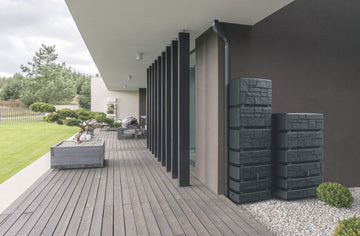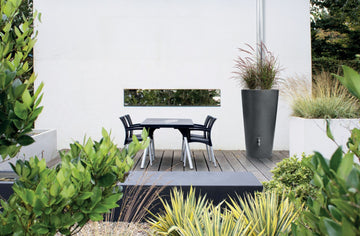Composting for beginners: step-by-step to your own compost
by Robert Zielinski on Mar 25, 2024
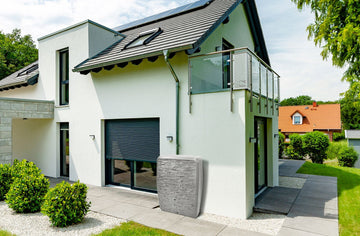
With the help of a compost bin, you can not only easily recycle kitchen and garden waste, but also make a significant contribution to protecting the environment. The best thing about it: composting turns organic waste into nutrient-rich humus , which enriches the soil and promotes plant growth. It is therefore a way of supporting the natural cycle of things.
How can I compost in my garden? To compost in your garden, first choose a suitable spot that is shady and well-ventilated. Add a mixture of green (kitchen scraps, fresh grass) and brown materials (leaves, shredded twigs) in layers. Make sure the compost pile always stays moist, but not too wet. Turn the pile regularly to ensure good ventilation. Over time, microorganisms will break down the organic materials into nutrient-rich compost, which you can then use as fertilizer in your garden.
Composting in your own garden is not difficult at all . In this article we will show you how you can quickly and easily create your own compost.
Why composting is important
Composting is probably the easiest way to improve the health of the soil in your garden and to help protect the environment at the same time - after all, the composting process happens more or less automatically. Find out here what advantages using compost offers you.
Benefits for the garden
Proper composting offers not just one, but numerous benefits for your garden. First of all, your home-made compost is an excellent fertilizer that you can use to enrich the soil in your garden with valuable nutrients and improve its structure. Compost also promotes the activity of beneficial microorganisms and worms , which are essential for healthy and fertile soil. It also improves the water retention capacity of the soil. In view of increasingly longer periods of drought and less rainy summers, this is an important factor.
All of this means that plants growing on soil fertilized with compost are stronger and more resistant to pests and diseases, which tends to result in a richer harvest and a more beautiful garden landscape.
Here are the benefits of composting for your garden at a glance:
| Advantage | Explanation |
| Natural fertilizer | Compost is rich in nutrients that nourish the soil and promote plant health. |
| Improved soil structure | Adds organic matter to the soil, improves aeration and promotes healthy root systems. |
| Promotion of microorganisms | Beneficial bacteria and fungi in compost support plant growth and soil health. |
| Increased water storage | Composted material helps the soil retain water better, which supports plants during dry periods. |
| Disease and pest resistance | Plants in compost-rich soil are often more resistant to diseases and pests. |
| Better harvest | Improved soil quality and plant health lead to a richer and higher quality harvest. |
Benefits for the environment
Composting is also only beneficial for the environment. Normally, your garden and especially your kitchen waste ends up in one of the many landfills in Germany. If you compost instead, the landfills have less work to do with organic waste. Less landfill waste means fewer methane gas emissions , a potent greenhouse gas that contributes to global warming. Landfills also use less electricity.
Another important point is that your home-made compost reduces or even eliminates your dependence on chemical fertilizers . Their production is usually very energy-intensive and often leads to pollution of surrounding waters and soil.
Compost also promotes biodiversity . Numerous creatures love the nutrient-rich, natural fertilizer that you mix into your soil in the form of compost. Worms, insects and microorganisms will feel much more comfortable in your garden than before and in turn feed other animals such as birds or rodents.
| Advantage | Explanation |
| Reduction of landfill volume | Composting recycles organic waste, reducing the amount of garbage that ends up in landfills. |
| Reduction of methane emissions | Less organic waste in landfills leads to lower emissions of methane, a greenhouse gas. |
| Conservation of natural resources | Composting reduces the need for chemical fertilizers, the production of which can be harmful to the environment. |
| Reducing chemical use | Natural compost reduces dependence on chemical pesticides and fertilizers that can lead to soil and water pollution. |
| Promoting biodiversity | Compost supports a diversity of soil organisms, which promotes biodiversity and ecological balance. |
| Contribution to environmental protection | Proper composting is a simple way to personally contribute to environmental protection and sustainability. |
Basics of composting
To make composting work, you need some basic knowledge. Don't worry - it's not complicated. Nevertheless, we'll give you a few tips to get you started . Understanding the basics of composting is the first step towards supporting the natural cycle and doing something good for the environment.
What can be composted?
Many organic wastes are compostable - theoretically almost all. In general, compostable waste can be divided into two categories: green materials and brown materials. Green materials are rich in nitrogen and include kitchen waste such as fruit and vegetable scraps, coffee grounds and eggshells. Brown materials, on the other hand, are rich in carbon and include leaves, straw, shredded branches or unprinted paper.
A balanced mix of these materials promotes aerobic decomposition, aided by microorganisms that generate heat and speed up the composting process. If you make sure to maintain this mix, there is little to stop you from having a quick and odor-free composting process.
Here are two lists to give an overview of green and brown waste:
Green (nitrogen-rich) materials:
- Fruit and vegetable leftovers
- Coffee grounds and filter paper
- Tea bags and tea leaves
- Grass and lawn clippings
- Plant remains and cut flowers
- Seaweed and algae (rinsed well to remove salt)
Brown (carbon-rich) materials:
- Eggshells (crushed)
- Leaves, hay and straw
- Finely chopped twigs and branches
- Sawdust and wood chips (from untreated wood)
- Cardboard and paper (torn or crumpled, untreated and uncoated)
- Cotton and wool (natural)
- Nut shells (except walnut shells, which can be toxic to some plants)
- Old potting soil
What should not be composted?
To avoid unpleasant side effects such as bad smells or pests , you should avoid a few specific types of waste. These include meat, fish, dairy products and fats, which attract unwanted animals and have a slow decomposition process. Diseased plant material and weed seeds should also be avoided, as they can spread diseases or weeds in the garden. Cat litter, dog excrement or diapers also do not belong in the compost, as they can contain pathogens. In addition, treated wood and ashes should be used in moderation, as they can contain pollutants that pollute the compost and the soil.
Just because these wastes can't be used in the compost doesn't necessarily mean you should just throw them away - some of them have alternative uses . Check out our table to find out what they are:
| Non-compostable waste | Reason | Alternative uses |
| Meat and fish | Attracts pests, slow decomposition | Organic waste bin or animal feed |
| Dairy products | Odor problems, attracts pests | Bio bin |
| Fats and oils | Disturbs the balance, attracts pests | Organic waste bin or reuse in the kitchen |
| Sick plants | Can spread diseases | Bio bin or burn |
| Weed seeds | Can germinate in compost | Bio bin or burn |
| Cat litter and animal excrement | Pathogens | Disposal in household waste |
| Treated wood | May contain harmful substances | Recycling or as firewood if safe |
| Coal ash | May contain heavy metals | Use with caution as fertilizer when pure |
| Plastics | Not biodegradable | recycling |
| metal | Not biodegradable | recycling |
| Glass | Not biodegradable | recycling |
| Diapers | Hygiene problems, pathogens | Disposal in household waste |
| Glossy/printed paper | Heavy metals and other pollutants in printing | recycling |
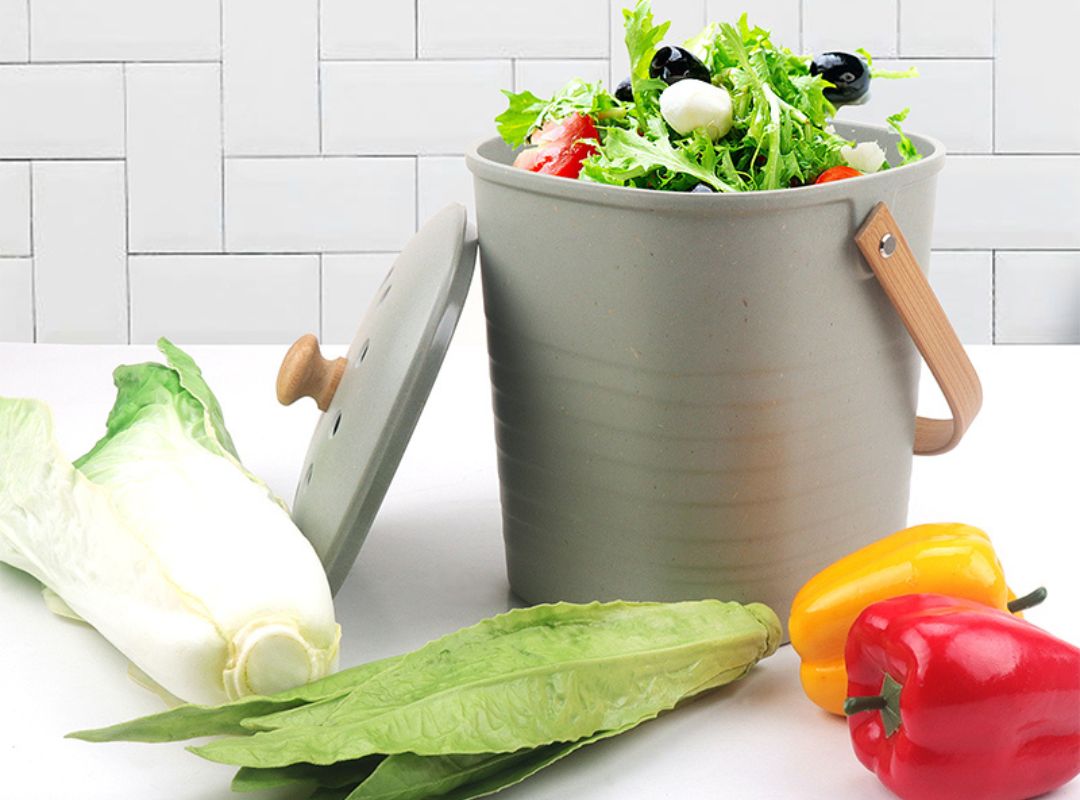
Step-by-step instructions for composting
Are you looking for a simple guide to composting that will help you get started right away? Then you've come to the right place:
- Choosing the right location: Choose a shady, well-ventilated spot in your garden. The ideal location should be easily accessible to make it easy to add materials and remove the compost. Avoid locations right next to wooden structures to prevent moisture damage.
- Build or buy a composter: Decide whether you want to buy a composter or build. YourCasa has different models for the kitchen and for the garden, all of which speed up the composting process thanks to good ventilation and humidity control. Always make sure that the composter has good ventilation and is "comfortable" for microorganisms.
- Layering and mixing materials: Start (in the case of a backyard composter) with a layer of coarse materials, such as branches, to encourage aeration. Then add alternating layers of green (nitrogen-rich) and brown (carbon-rich) materials. A good mix is about one part green to two parts brown materials. Make sure the materials are moist, but not too wet.
- Compost care: Turn the compost regularly, for example with a pitchfork, to ensure good air circulation and speed up the decomposition process. Check the moisture occasionally: the compost should be moist, but not soaking wet. Add water or dry materials as needed to maintain balance.
- Check compost maturity: Compost is ready when it resembles dark, crumbly soil and has a pleasant, earthy smell. This can take anywhere from a few months to a year, depending on conditions. Sift the finished compost to remove any larger, not yet fully decomposed pieces and use it in your garden.
Tips for successful composting
Although proper composting is definitely not rocket science, it does require more than just collecting waste. There are also a few stumbling blocks that one or two hobby gardeners have stumbled over. To ensure that everything goes smoothly for you and that your homemade, valuable fertilizer can soon do some good for your garden , we have collected a few useful tips for you.
Avoid common mistakes
First of all, it's important to avoid mistakes. One of the most common mistakes is probably an imbalance between green and brown waste . Too much green (nitrogen-rich) material will result in a wet, smelly pile, while too much brown (carbon-rich) material will slow down the decomposition process.
Lack of ventilation is also a common mistake. Too little air in the compost leads to an anaerobic environment - and the compost begins to rot. A musty smell is a common sign of this. In addition, your compost should never be too wet. Excess water displaces the oxygen necessary for decomposition. Also avoid adding non-compostable materials, as these can attract pests or spread disease.
How to speed up the composting process
If you know the basics, you can try to speed up the composting process by creating optimal conditions for the beneficial microorganisms responsible for the composting process.
Regularly aerating the pile by turning it over promotes the supply of oxygen and prevents unpleasant odors. Shredding materials such as eggshells and wood into smaller pieces speeds up their decomposition. A balanced ratio of green and brown materials supports efficient composting.
In addition , additives such as compost starter or mature compost can accelerate or enhance the composting process by increasing the microorganism population.
Small-scale composting: solutions for balconies and small gardens
There are also solutions for the balcony, for small gardens or even for the kitchen that you can use to compost waste. Worm boxes or Bokashi buckets are popular, for example. YourCasa has practical kitchen composters such as the 7l compost bucket or larger garden composters such as the EcoFusion . In any case: even if you don't have much space, you can compost without any problems.
In this table you can see the advantages and disadvantages of different types of composters at a glance:
| Composter type | Advantages | Disadvantages |
| Worm boxes | Fast composting through worm activity; Ideal for indoor use; produces high-quality worm humus | Limited capacity; not suitable for all types of waste; need to maintain the worm population |
| Bokashi bucket | Ferments kitchen waste, including meat and dairy products; fast process; can be used in the kitchen | Produces acidic fermentation slurry that must be incorporated into soil or garden composter; purchase of Bokashi bran necessary |
| Kitchen composter | Compact, ideal for small rooms or apartments; Low odor | Relatively small capacity; Regular emptying necessary |
| Garden composter | Large capacity for garden and kitchen waste; promotes aerobic composting | Requires space in the garden; slower process than worm boxes or bokashi |
| Drum composter | Speeds up the composting process by simply turning; protects against pests and pets | Higher costs compared to simple composters; requires physical effort to turn |
| Open compost heap | Cheap and easy to set up; large capacity for open composting | May attract pests; requires manual ventilation by moving |
| Thermocomposter | Fast composting through heat development; low odor and protects against pests | Higher acquisition costs; optimal conditions must be maintained |
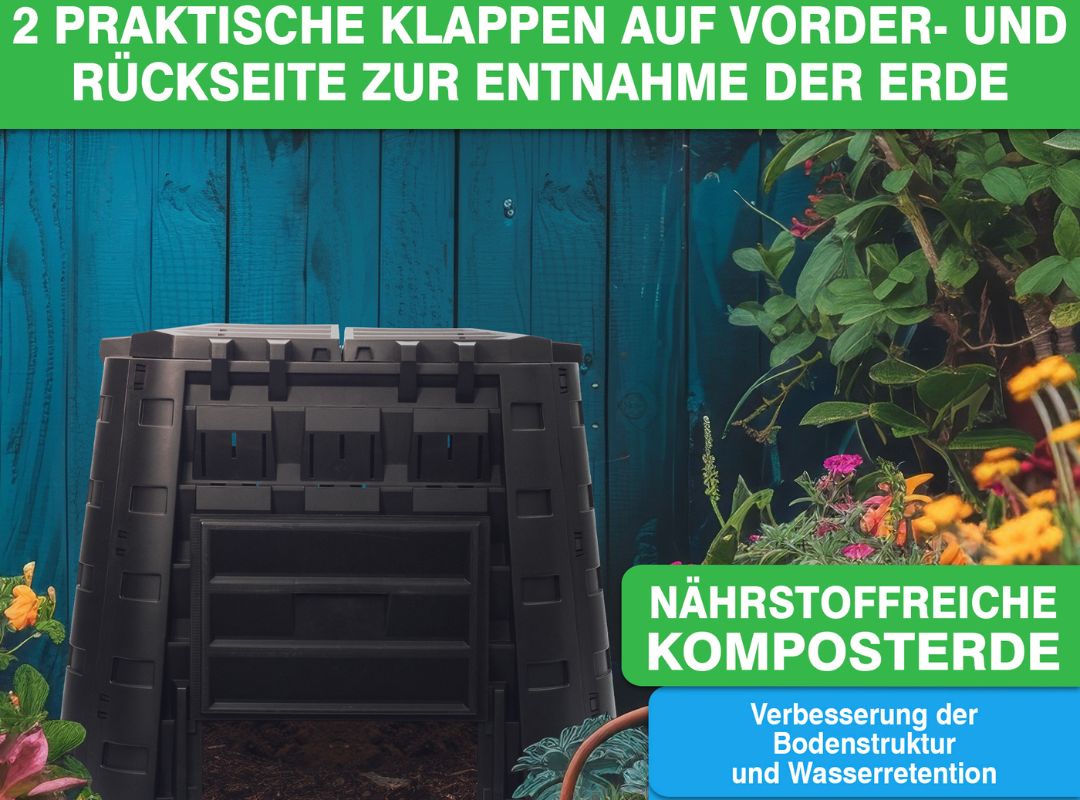
Conclusion: Environmental protection made easy
Every gardener who cares about themselves, their garden and the environment should compost - and better start today than tomorrow . Composting simply offers too many advantages to pass up. Starting a more sustainable gardening life with a garden composter is also very easy. If you follow our tips, you will have your own high-quality compost in just a few months.

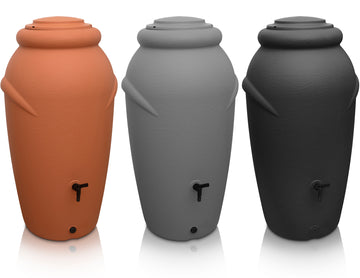
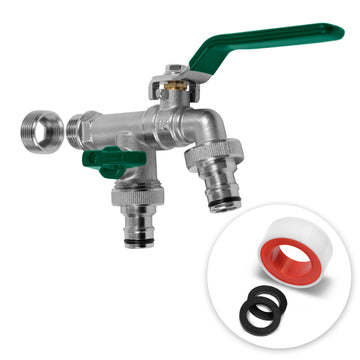
![Drei hohe YourCasa Regentonne 240 Liter [Wellen-Design] - Frostsicher & UV-beständige Gartentöpfe in den Farben Schwarz, Grau und Terrakotta, jeweils mit Drainagesystem für nachhaltige Bewässerung.](http://yourcasa.de/cdn/shop/files/ohnelogo_b8aeecac-557e-4106-a999-e77dcd160209.jpg?v=1707130230&width=360)
